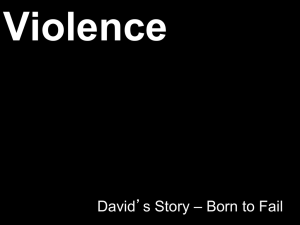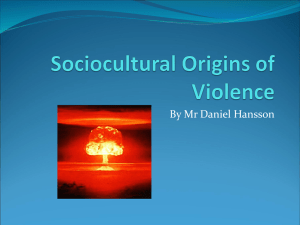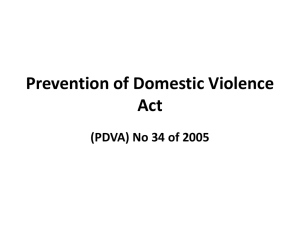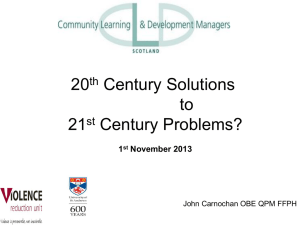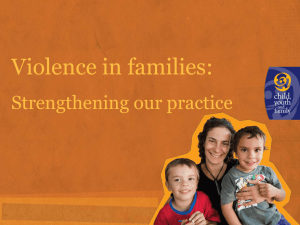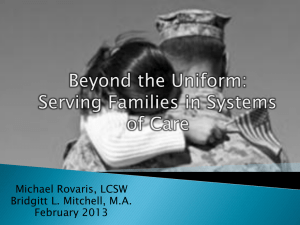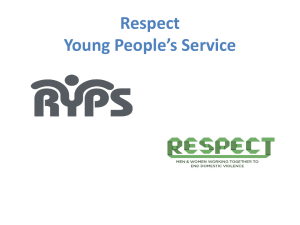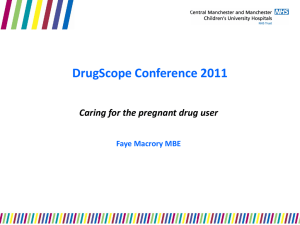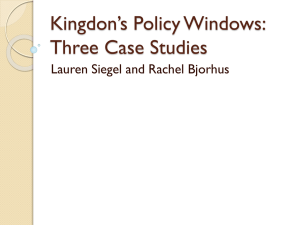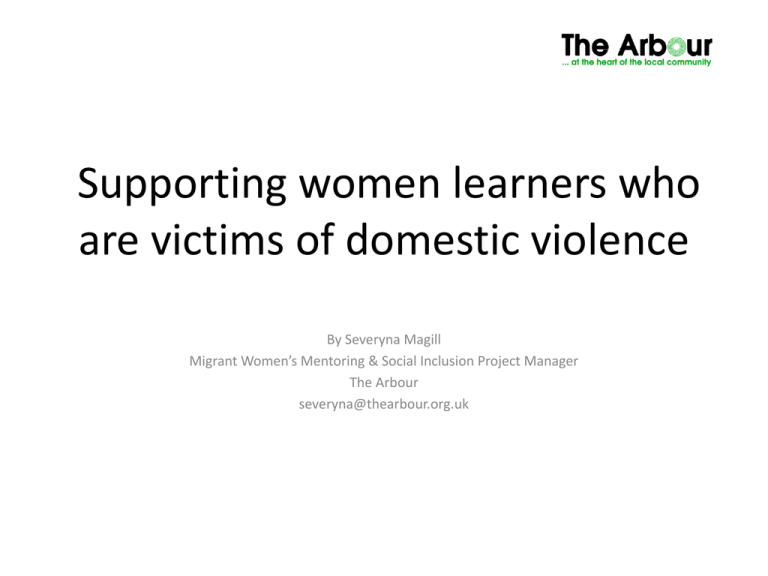
Supporting women learners who
are victims of domestic violence
By Severyna Magill
Migrant Women’s Mentoring & Social Inclusion Project Manager
The Arbour
severyna@thearbour.org.uk
Supporting women learners who are victims of domestic violence
This workshop will have three stages:
1. Who is this workshop designed for and why?
2. What is domestic violence and how can we
identify it?
3. Practical support and guidance we can offer
students, who to refer to and writing a
supporting letter.
Who is this workshop designed for and why?
This workshop has been designed to give
frontline workers information to support men
and women with an insecure immigration
status who are on a visa that can lead to
settlement who are experiencing domestic
violence.
What is domestic violence and how can we identify it?
• What is domestic violence?
1. How many types are there?
2. What forms can it take?
2. What is domestic violence and how can we identify it?
Physical
Emotional
Psychological
Economic
Sexual
taking the car away
following you
telling you where you
can and cannot go
preventing you from
seeing friends and
relatives
breaking things
punching walls
punching / pinching
slapping
hitting/biting/kicking
pulling hair out
pushing/ shoving
burning
strangling.
shouting
name calling
verbal threatening
shouting you down
threatening to kill or
harm you and the
children
persistently putting
you down in front of
other people
not listening or
responding when you
talk
sulking
threatening to call
the police / border
agency
lying to you /breaking
promises
mocking
accusing
disconnecting the phone
threats to commit suicide
threats to take the
children away
telling you that you have
no choice in any
decisions
lying to your friends and
family about you
opening your mail saying
the abuse doesn't
happen, saying you
caused the abusive
behaviour, being publicly
gentle and patient, crying
and begging for
forgiveness, saying it will
never happen again.
threatening to
withhold money
taking money from
your purse without
asking
refusing to help with
childcare or
housework
using force
threats or
intimidation to
make you perform
sexual acts
having sex when
you don't want to
any degrading
treatment based
on your sexual
orientation
2. What is domestic violence and how can we identify it?
"Any incident of threatening behaviour, violence
or abuse (psychological, physical, sexual, financial
or emotional) between adults who are or have
been intimate partners or family members,
regardless of gender or sexuality.“
This includes issues of concern to black and minority ethnic (BME)
communities such as so called 'honour' based violence, female genital
mutilation (FGM) and forced marriage, and is clear that victims are not
confined to one gender or ethnic group.
http://www.homeoffice.gov.uk/crime/violence-against-womengirls/domestic-violence/
Identifying domestic violence
• If a beneficiary is surviving domestic violence
what are the warning signs, how can we
identify it?
Physical
marks/bruises
Missing classes
Becomes
withdrawn
No longer
contributes/values
contributions
Warning signs
Stops attending
suddenly
Hesitation to travel
Attendance for
extra curricular
activities stops
3. Practical support and guidance.
Now we know how to identify violence what are
the next steps?
• Supporting students
• Within your organisation
• Signposting
• Applying for Indefinite Leave to Remain
• Destitute?
• Organising evidence
3. Practical support and guidance.
Supporting students
• Confidentiality – explain what this means, that
her peers will never know. Check with your
manager what safeguarding and confidentiality
agreements your organisation has in place.
• Give reassurance
• Explain options: if she wants to stay/leave/when
3. Practical support and guidance.
Within your organisation
• Informing Project Manager/Welfare Officer –is
there a responsible employee?
• Writing file notes –include, exactly what has been
disclosed, the student’s name, date, your name
and signature.
• Hardship fund
• Extra curricular opportunities eg creative classes,
employability skills, mentoring
3. Practical support and guidance.
Signposting
• Counselling –general or culturally/needs specific
• Regular activities such as art, reading clubs, wellbeing
activities
• GP to log and assess physical and psychological impact
and health
• DV specialists eg Refuge, Ashiana, Imkaan, Women’s
Aid (offer refuge, guidance and counselling support)
• Immigration lawyers registered with Immigration Law
Practitioners’ Association (ILPA) www.ilpa.org.uk
Applying for Indefinite Leave to Remain:
• Complete a SET(DV) form
• Client must be in the UK on a visa that can lead to
settlement and entered as a spouse/partner
• Show your relationship was subsisting when you
entered the UK
• Meet paragraph 289A of Immigration rules
• Prove that your relationship broke down because of
domestic violence
• Not have any unspent criminal convictions
• Send photographs
• Send fee £820 per adult & £50 per dependent
Paragraph 289A – of UKBA Immigration Rules
Requirements for indefinite leave to remain in the
United Kingdom as the victim of domestic violence
289A. The requirements to be met by a person who is the victim of domestic violence and who is seeking
indefinite leave to remain in the United Kingdom are that the applicant:
(i)
was admitted to the United Kingdom for a period not exceeding 27 months or given an extension of stay
for a period of 2 years as the spouse or civil partner of a person present and settled here; or;
(ii) was admitted to the United Kingdom for a period not exceeding 27 months or given an extension of stay
for a period of 2 years as the unmarried or same-sex partner of a person present and settled here; and
(iii) the relationship with their spouse or civil partner or unmarried partner or same-sex partner , as
appropriate, was subsisting at the beginning of the relevant period of leave or extension of stay referred
to in (I) or (ii) above; and
(iv) is able to produce such evidence as may be required by the Secretary of State to establish that the
relationship was caused to permanently break down before the end of that period as a result of domestic
violence; and
(v) the applicant does not have one or more unspent convictions within the meaning of the Rehabilitation of
Offenders Act 1974.
Destitute?
Applying for access to public funds for 3 months
to make an ILR application:
• Complete at Notification of Need for Access to
Public Funds form
• Send to
domestic.violence@homeoffice.gsi.gov.uk
• Demonstrate that you’re destitute, eg have
been means tested by a Local Authority
Organising evidence
• Letter from a hospital/GP inc. GMC registration
number inc dates of visits, injuries, extracts of notes
• MARAC letter saying a MARAC has been convened on
their behalf
• Non-Molestation Order –must be a final order, not an
interim/ex-parte order
• Police report inc incident log
• Letter from Social Services re its involvement with you
• Letter from specialist DV organisation/refuge
• Other documentary evidence –eg a teacher’s letter on
letterhead paper
Case Studies:
A: Tania is from Iran, she regularly attended all
of her lessons at college for 6 months. She is
cheerful and friendly with other students in
the class. She has recently become
withdrawn, misses classes and has stopped
talking with her friends in the class. What can
you do?
Case Studies:
B: Shika from Bangladesh has disclosed that her
husband is abusing her. She has said that she
feels scared when she is at home, that he calls
her names and threatens her and that if she
doesn’t do everything he asks he says he will
report her to immigration and have her
deported. She thinks she has to stay married
to stay in the UK.
Case Studies:
C: Vicky, a teacher, noticed that her student
Nazmin had become very withdrawn and
quiet in the class in October 2011. She
mentioned it to her Project Manager and
wrote a file note. Nazmin hadn't disclosed
anything and now says she wants to leave as
soon as possible as she has been suffering
abuse that has escalated and become
intolerable.
Case Studies:
D: Aaliya has expressed that she has a difficult
marriage to her class but not been specific.
You ask her what she meant after and she just
says ‘not good’. You offer reassurance and she
later discloses her parents in law make her do
everything in the home for them, that her
husband refuses any support, gives her no
money for food or travel and calls her names,
mocks and ignores her. She doesn't want to
leave.
Who to contact?
Domestic Violence Help and Advice
• National Domestic Violence
• All Wales Domestic Abuse and
helpline
Sexual Violence
owww.nationaldomesticviolenceh
Helpline
elpline.org.
www.allwaleshelpline.org.uk/
Uk Phone: 0808 2000 247
Phone: 0808 80 10 800
• Scottish’s Women’s Aid
www.scottishwomensaid.org.uk
Phone: 0800 027 1234
• The Dyn Project – Wales only
www.dynwales.org
Phone: 0808 801 0321
• Abused Men in Scotland
www.abusedmeninscotland.org/
Phone: 01383 62 44 11
• BAWSO
http://www.bawso.org.uk/
Phone:0800 731 8147
• Southall Black Sisters
www.southallblacksisters.org.uk
Phone: 0208 571 0800
• Welsh Women’s Aid
www.welshwomensaid.org.uk
Phone: 02920 390 874
• Men’s Advice Line
www.mensadviceline.org.uk
Phone: 0808 801 0327
• Women’s Aid
www.womensaid.org.uk
Phone: 0808 2000 247
• Refuge
www.refuge.org.uk
Phone: 0808 2000 247
• Women’s Aid Federation
(Northern Ireland)
www.womensaidni.org
Phone: 0800 917 1414
• Rights of Women
www.rightsofwomen.org.uk
Phone: 0207 251 6577
Who to contact?
Immigration advice
All immigration advisers must be registered with the Office of Immigration Services Commissioner
(OISC), or be an adviser with an organisation which is exempt from registration.
UKBA’s Immigration Enquiry Bureau can provide information about the Immigration Rules‘
requirements for permission to stay and settlement in the UK. They cannot provide estimated
completion dates for applications. They cannot give you legal advice.
• UKBA – Immigration Enquiry Bureau
UKBApublicenquiries@ukba.gsi.gov.uk
Phone: 0870 606 7766
• Citizens Advice Bureau
www.adviceguide.org.uk
• Immigration Law Practitioners’ Association (ILPA)
• Southall Black Sisters
www.ilpa.org.uk
www.southallblacksisters.org.uk
Phone: 0207 251 8383
Phone: 0208 571 0800
• Rights of Women, Immigration and asylum advice
www.rightsofwomen.org.uk
Phone: 0207 490 7689
Taken from: http://www.ukba.homeoffice.gov.uk/sitecontent/documents/residency/domestic-violence-help.pdf

